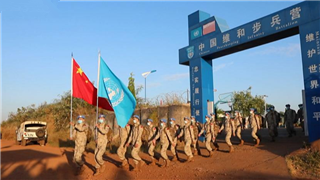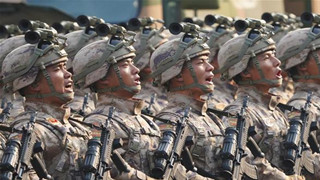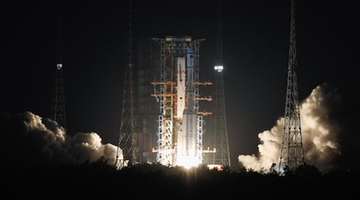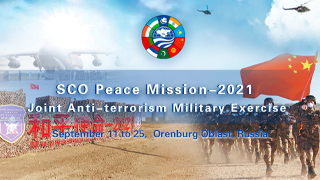By Cheng Anqi
Anger may be what the EU has felt most in the diplomatic arena over the past year, and one of the reasons for that is the US, its so-called ally. What the US has done in the past year, from tapping the leaders of European allies to pulling troops out of Afghanistan without prior notice to stealing Australia’s nuclear submarine contract from France, has increasingly made the EU realize its lack of strategic independence. But can it become strategically independent?
Strategic independence as a “priority”
The US left its European allies and pulled back from Afghanistan at the end of August this year under the Taliban’s ultimatum. Later it and the UK formed a “trilateral security partnership” with Australia and helped the latter build nuclear submarines, prompting Canberra to call off its nuclear submarine contract with France.
According to Professor Wang Shuo at the School of International Relations and Diplomacy, Beijing Foreign Studies University, the EU has been planning to form a rapid reaction force for a long time, but still hasn’t taken any substantial action because of the lack of motivation. America’s pullback from Afghanistan once again exposed Biden administration’s “American-style self-centrism” and stimulated the EU to take accelerated actions toward strategic independence.
Tian Dewen, deputy director of the Institute of European Studies of the Chinese Academy of Social Sciences, held that the dual shocks from Brexit and COVID-19 have taken a toll on the EU’s global influence that it used to pride itself on. At this moment, the US is obviously shifting its strategic focus to the Indo-Pacific, putting Europe in such a dilemma that it has to rely on the US for military security but cannot totally count on it. Threatened by the risk of geopolitical oblivion, the EU is pressured to realize strategic independence as soon as possible to continue playing a unique “leading role” on the international stage.
A consensus is hard to reach within the EU
“The EU is just a union of sovereign states that has no independent authority in security and defense policies, on which point the member states vary greatly. Therefore, it’s hard to reach a consensus within the union on the contents and progress of strategic independence,” said Tian Dewen.
He analyzed that France and Germany, the two engines of European integration, have wide divergences on the topic. Germany, for historical reasons, doesn’t hope to see the EU’s strategic independence contradict NATO’s collective defense. Besides, Central and Eastern European countries and some Nordic countries are more trustful of America’s commitment to security and military protection.
Wang held that although EU as a whole has a stronger wish for strategic independence, it’s only natural that the multiple member states vary from each other in capability, demand and strategic goals – such differences are what EU needs to smooth out first if it is to achieve strategic independence. Considering the uneven development speed and serious divergences on the distribution of interests among member states, the EU has proposed to streamline the decision-making procedures and allow for a Europe of various tracks. However, that makes many Central and Eastern European countries worry that they may be reduced to the second class within the Union.
“Change of mindset” required to realize strategic independence
America’s attitude is vital among all the factors that may hinder the EU’s progress toward strategic independence. “What the US needs is a Europe that is capable of taking actions as an ally, but not one that’s totally independent and uncontrollable,” said Wang Shuo. Major-country competition has become America’s strategic priority in recent years. However, it will neither give free rein for the EU to foster strategic independence, nor make more military investment in Europe, or give up its dominance over Europe’s defense. Under such circumstances, the US will make use of the Union’s internal conflict to divide it and consequently influence or even control the tempo of its efforts toward strategic independence and defense integration.
Tian explained that strategic independence is a process for the EU. What it’s doing now is just quantitative accumulation. To achieve a qualitative change, it has to abandon the Cold-War mindset and stick to its position and function as a supra-national entity – to safeguard peace and prosperity in Europe rather than seek confrontation with other countries. Only when it changes its strategic mindset will it be possible to make breakthroughs on its way toward strategic independence.










